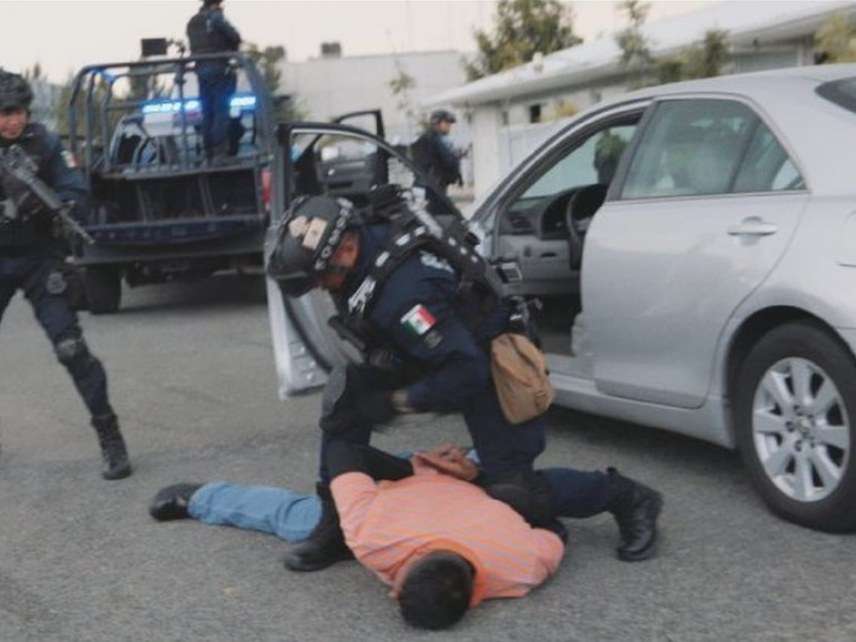Showtime Documentary Highlights Drug War's Futility
The Trade offers access to cartels, addicts, and cops alike.

The Trade. Showtime. Friday, February 2, 9 p.m.
In all the billions of words and electronic images expended in telling the story of the war on drugs, perhaps nothing sums it up quite so concisely as a scene in Showtime's new documentary series The Trade. As a bedraggled mother is dragged off following her arrest on heroin charges, a cop kneels to speak to her crying children. "It's okay," he comforts them. "We're the good guys." After more than a century of this senseless, futile war, you still can't identify the players without a scorecard.
Producer-director Matthew Heineman, in his second go-round with the war on drugs (his 2015 film Cartel Land was nominated for the Oscar in documentaries), has given us an unnervingly close-up study of the conflict. Given an astonishing level of access to both Mexican drug lords and American junkies, he's intercut their stories with a narrative about an Ohio police narcotics squad, which though far more ordinary, is still revealing.
The result is a maddening and depressing account of cruelty and stupidity on every side. In the southwestern Mexico state of Guerrero, the country's top-producing poppy state, Don Miguel's heroin business is booming so much that he throws a giant Christmas party for the kids in his town, complete with toys and pizza.
But his body count is rising exponentially, too, as he settles difficulties (real or imagined) with rivals in distinctly un-lawyerly ways—a part of the job, Don Miguel is quick to add, that he doesn't enjoy: "It's no fun doing dirty work." Judging from the terrifyingly animalistic howls of townfolk who've found loved ones among roadside stacks of Don Miguel's tortured, headless victims, it's not much fun on the receiving end, either.
A couple of thousand miles to the northeast in Atlanta, we meet some of the consumers of Don Miguel's product. Skylar, a 30-ish junkie whose days are devoted to shooting a prodigious amount of dope and ripping off his parents, is—after going through seven overdoses and the shootings of a bunch of his friends—as fatigued as Don Miguel. "The last seven years have been like a frickin' roller coaster," he allows, saying he's ready to quit. His mother, who's heard it all before, is willing to help, but skeptical. "Skylar would walk over my dead body to get his drug," she declares with weary certainty.
And in Columbus, Ohio, narcotics cops are relentlessly pursuing their mission to get drugs off the street with the same single-minded zeal of the American military officer in Vietnam who famously observed that sometimes you've got to destroy a village in order to save it. "Chilling" isn't nearly a sufficient word for what it feels like to listen as they map out a flash-bang grenade attack on a suspected drug house, even though they know several small children are inside.
The raid, amazingly, ends without disaster, only because a couple of addled junkies—"dealers" in the sense only that they sell small amounts of dope to support their own habits—have better judgment than the cops and surrender without a fuss. "I am making a difference," brags one of the cops. "We are getting drug dealers off the street. At least this way we can say we are trying." So are Special Olympics softball players who get ribbons for hitting the ball even though they ran to third base instead of first. That analogy is dead-on, in more ways than one.



Show Comments (16)